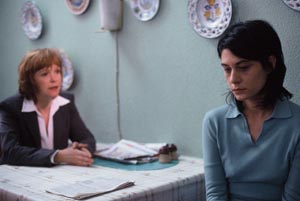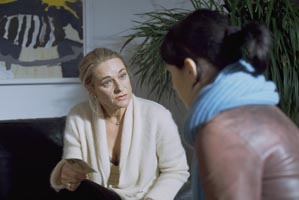 |
|
Sarajevo 2005, the war has been over for years, but it still holds thirty-year-old Senada (Labina Mitevska) hostage. Her daughter, Aida, has been listed as missing for ten years, but Senada has not yet forsaken the hope that he is alive. She clings in despair to a vague sign, in spite of the fact that her former husband Samir (Senad Basic), and her friends encourage her to finally let it go and try to build a new life. But Senada refuses to give up.
When she finds evidence that the Red Cross flew children out to Germany during the war, she follows the trail immediately and arrives after a long journey at Ulm. Her stubborn determination is rewarded: Aida had actually been saved and brought to Germany. Given up for adoption, under the assumption that her parents were dead, her 12-year-old daughter, now called Kristina, and her found family (the Heinles) are shaken to the roots when they learn that the mother they thought was dead, is in fact very much alive and knocking on the door to get her daughter back. |
|||
The Heinles are confused. They love their daughter more than everything and cannot conceive of losing her. Social worker MRS. Jandrasko (Katrin Sass) fights on two fronts. Nevertheless she tries to arbitrate between the parties. Senada is finally confronted with a difficult decision: should she insist on the return of her daughter, thereby wrenching her from her social circumstances and life in Germany, or return alone to Bosnia in the knowledge that her daughter is alive and doing well? Starring prize-winning young Macedonian actress Labina Mitevska (Before the Rain), Christian Wagner’s multi-honored family drama goes behind the scenes of Europe’s recent turbulent past in this tense drama to plumb the haunting memories of war. |
|
Director Christian Wagner "The film WARCHILD tells an authentic “search” story, and also addresses issues such as: the responsibility of parents (biological or adoptive) toward their children; the victory over self-interest; road to selfdiscovery; and the long-term effects of war. Important timely material, and conflicts relevant to Central Europeans. As a result of the expansion of the European Union, Central Europeans will be dealing with many more such conflicts in the future."

